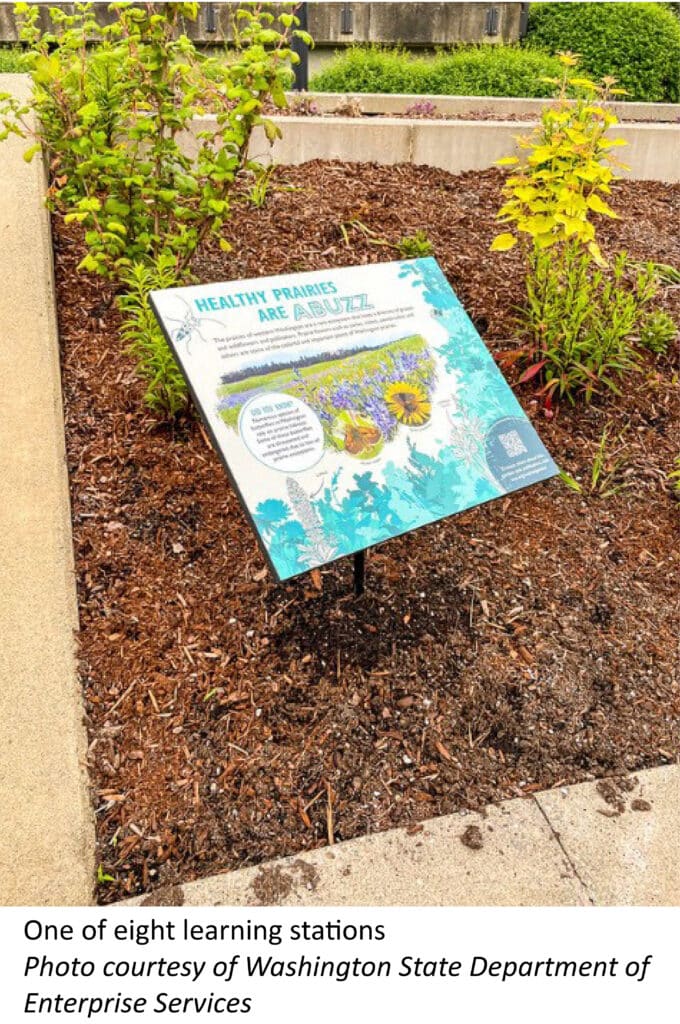
Nine organizations collaborated to create a 1,000 square foot demonstration garden on the Washington State Capitol campus. The project with eight learning stations, was completed in June. It marks the first garden on the campus with an intentional educational component.
The Capitol Campus Pollinator Garden, open every day, was designed to remind residents that pollinators are under threat and to raise awareness of the importance of butterflies, bees, hummingbirds, moths and other species to the health of flowering plants and food crops.

“We depend on these 600+ species to propagate vegetables, flowers, and other plant life that are central to our economy and culture in Washington,” said Gov. Jay Inslee at the opening event. “We are all connected to these pollinators, so this teaching garden will help remind us of their value.”
Information on how residents and businesses can help steward and conserve pollinators in their own yards is available from Woodland Park Zoo, one of the partners in the project. The website includes links to a pollinator toolkit, a list of nearly four dozen pollinator garden plants, native plant nurseries in Washington state, and other resources.
In addition to the zoo, others who collaborated on the pollinator garden included
- Department of Enterprise Services
- The Office of the Governor
- Washington State Department of Fish & Wildlife (WDFW)
- Washington State Department of Agriculture
- Xerces Society
- Squaxin Island Tribe
- Nisqually Indian Tribe
- The Chehalis Tribe
“As a conservation agency dedicated to restoring Washington’s biodiversity, we at WDFW are proud to be a partner in this effort,” said WDFW Director Kelly Susewind. “By working with our partners, we can help protect and restore habitat, advance rare species recovery, and implement projects aimed at better understanding pollinator status in our state and this garden is a great step toward that goal.”
Funding in the amount of $53,000 was provided by the state Legislature during this year’s session to cover installation and initial maintenance.
The new garden is located in the heart of the east Capitol Campus grounds over the 14th Avenue tunnel. Visitor parking is available along the north and south diagonals next to the Tivoli Fountain.